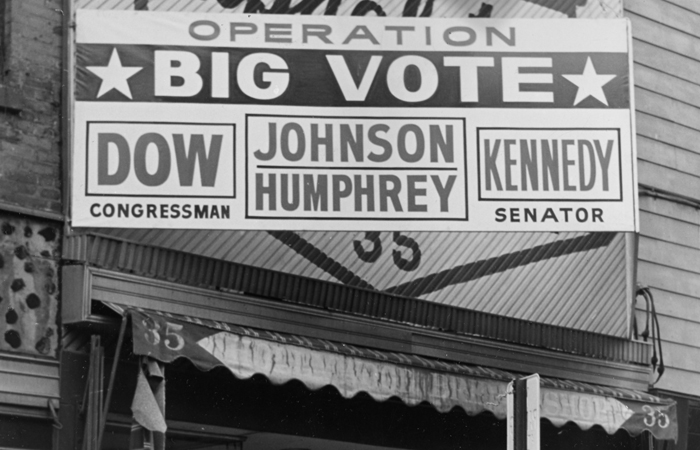Collections : [New York State Modern Political Archive]
New York State Modern Political Archive
Elected officials, interest groups, and activists from New York State.
Search Constraints
Start Over You searched for: Collecting Area New York State Modern Political Archive Remove constraint Collecting Area: New York State Modern Political ArchiveSearch Results
Writings, 1980-1985 0.15 cubic ft.
This series consists of various typescript versions of two articles concerning the persecution of socialists and communists after the First World War. Some were written for presentation at various scholarly conferences and others in anticipation of publication. The first article, which concerned anti-radical activity in three communities in upstate New York, was published as "The Democratic Elitism of Dye and Ziegler: Traditional Elitist Anti-Democratic Theory in Modern Garb?" by the Eastern Sociological Society in 1981. The final version of the second article, which concerned the Red Scare in Detroit and other cities, appeared in Popular Culture and Political Change in Modern America (Albany: SUNY Press, 1991), a collection of essays edited by Ronald Edsforth and Larry Bennett. One of the later drafts contains Edsforth's and Bennett's extensive comments and suggestions.
